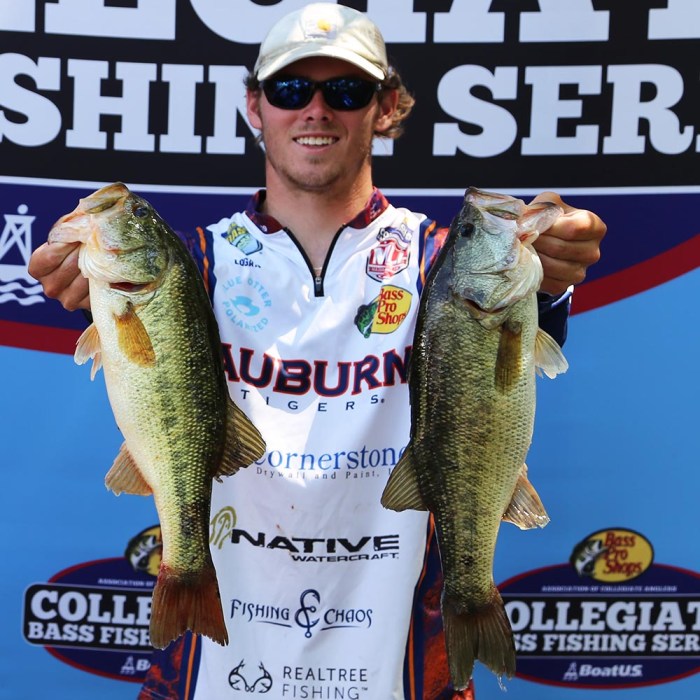Embarking on the topic of scholarships for fishing, this opening paragraph aims to captivate and engage readers, setting the tone of friendly formality that unfolds with each word.
The content of the second paragraph provides descriptive and clear information about the topic.
Scholarships for Fishing Students
Many organizations offer scholarships to students who are interested in pursuing a career in fishing. These scholarships can help cover the costs of tuition, fees, and other expenses associated with attending college or trade school.
To be eligible for a fishing scholarship, you must typically meet the following criteria:
- Be a high school senior or college student
- Have a strong academic record
- Be involved in extracurricular activities, such as fishing clubs or tournaments
- Have a passion for fishing and a desire to pursue a career in the field
There are a number of organizations that offer scholarships to fishing students. Some of these organizations include:
- The American Fisheries Society
- The National Fisheries Institute
- The Sport Fishing Institute
- The Coastal Conservation Association
- The International Game Fish Association
To apply for a fishing scholarship, you will typically need to submit an application form, a transcript of your academic record, and a letter of recommendation. You may also be required to submit an essay or participate in an interview.
The application process for fishing scholarships can be competitive. However, if you are a qualified candidate, you have a good chance of being awarded a scholarship.
Types of Fishing Scholarships

Fishing scholarships offer financial assistance to students pursuing education in fishing-related fields. These scholarships vary in their eligibility criteria, benefits, and funding sources. Understanding the different types of fishing scholarships available can help students identify the most suitable options for their individual needs and career goals.
General Fishing Scholarships
General fishing scholarships are open to students pursuing any major related to fishing, such as fisheries science, marine biology, or aquaculture. These scholarships typically cover tuition, fees, and living expenses, and may be offered by universities, government agencies, or private organizations.
Benefits:
- Provide financial support for students pursuing fishing-related education.
- Encourage students to pursue careers in the fishing industry.
li>Help students develop skills and knowledge necessary for success in the field.
Examples:
- The American Fisheries Society Scholarship Fund
- The National Fisheries Institute Scholarship Program
- The Sportfishing Education Fund Scholarship Program
Targeted Fishing Scholarships, Scholarships for fishing
Targeted fishing scholarships are designed for students pursuing specific areas of study within the fishing industry. These scholarships may focus on a particular species of fish, fishing method, or region. For example, there are scholarships available for students studying salmon fishing, fly fishing, or aquaculture in the Pacific Northwest.
Benefits:
- Provide financial support for students pursuing specialized areas of fishing.
- Encourage students to develop expertise in specific fishing-related fields.
- Help students connect with professionals in their chosen area of study.
Examples:
- The Billfish Foundation Scholarship Program
- The International Game Fish Association Scholarship Program
- The Atlantic Salmon Federation Scholarship Program
Minority Fishing Scholarships
Minority fishing scholarships are designed to support students from underrepresented groups who are pursuing fishing-related education. These scholarships may be offered by organizations dedicated to promoting diversity and inclusion in the fishing industry.
Benefits:
- Provide financial support for minority students pursuing fishing-related education.
- Encourage students from underrepresented groups to pursue careers in the fishing industry.
- Help create a more diverse and inclusive fishing industry.
Examples:
- The American Indian College Fund Fishing Scholarship
- The National Hispanic Scholarship Fund Fishing Scholarship
- The Asian Pacific Islander American Scholarship Fund Fishing Scholarship
How to Find Fishing Scholarships
Securing a fishing scholarship can significantly alleviate the financial burden associated with pursuing higher education. To increase your chances of success, it’s crucial to conduct thorough research and explore various scholarship opportunities. This comprehensive guide will provide you with a step-by-step approach to finding and applying for fishing scholarships.
Begin by identifying reputable scholarship databases that specialize in fishing scholarships. These databases often provide a wide range of scholarships from different organizations, making it easier to find opportunities that align with your interests and qualifications.
Scholarship Databases
| Scholarship Database | Website |
|---|---|
| College Fishing Foundation | https://collegefishingfoundation.com/ |
| Bass Anglers Sportsman Society | https://www.bassanglersportsmanssociety.com/ |
| National Fishing Association | https://nationalfishingassociation.org/ |
| American Fisheries Society | https://www.fisheries.org/ |
| United States Power Squadrons | https://www.usps.org/ |
In addition to using scholarship databases, consider reaching out to fishing clubs, organizations, and businesses in your area. These entities may offer scholarships specifically tailored to students pursuing fishing-related degrees or careers.
Tips for Increasing Your Chances of Winning
To maximize your chances of winning a fishing scholarship, follow these tips:
- Maintain a strong academic record:Scholarships often have minimum GPA requirements, so it’s important to excel in your coursework.
- Demonstrate your passion for fishing:Highlight your involvement in fishing clubs, competitions, or volunteer work in your application.
- Showcase your leadership skills:Take on leadership roles in fishing organizations or community service projects.
- Craft a compelling essay:Write a well-written and persuasive essay that explains why you deserve the scholarship and how it will help you achieve your educational goals.
- Apply early:Many scholarships have deadlines, so submit your applications as early as possible to increase your chances of being considered.
- Network with professionals:Attend fishing industry events and connect with professionals who can provide you with valuable information and support.
Essential Questionnaire
What are the eligibility criteria for fishing scholarships?
The eligibility criteria vary depending on the scholarship provider. Some common requirements include academic achievement, financial need, and a demonstrated interest in fishing.
How do I find fishing scholarships?
There are a number of ways to find fishing scholarships. You can search online scholarship databases, contact fishing organizations, and check with your school or local library.
What are the benefits of fishing scholarships?
Fishing scholarships can provide financial assistance to help you pay for college. They can also help you connect with other students who share your interest in fishing.




